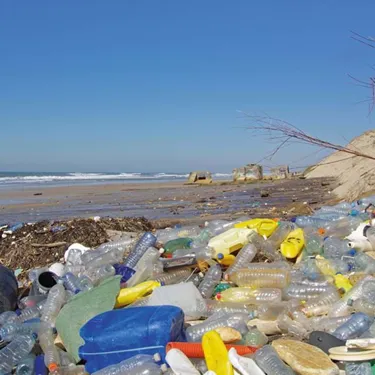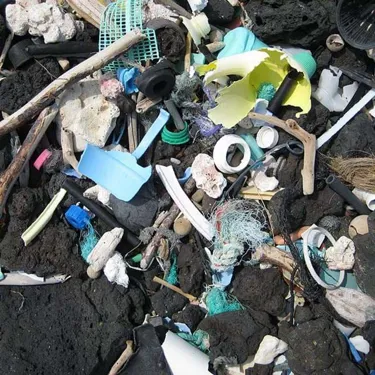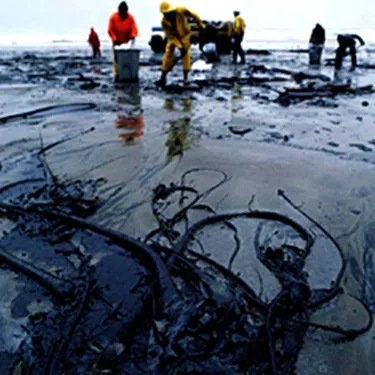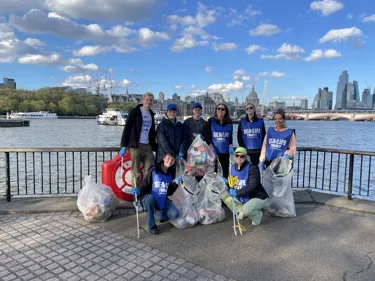Be an Ocean Hero: Pollution Solutions for Kids & Families
- Monday 3rd November 2025

The ocean is a magical place full of wonderful animals, beautiful corals, and fascinating sea creatures. But did you know that the ocean is facing a big problem? It’s being polluted, and it’s affecting not just the animals, but the health of the entire planet. The good news is that there is a lot we can do to help! Kids and families can play a huge role in reducing ocean pollution. In this article, we’ll talk about why the ocean is getting polluted, how it impacts the creatures living there, and most importantly, what you can do to help keep the oceans clean and safe.
What Is Ocean Pollution?

Ocean pollution happens when harmful materials, like plastic, oil, chemicals, and trash, are dumped or washed into the ocean. These pollutants come from many places, including beaches, factories, and even our homes! Once these harmful substances enter the water, they can stay there for a very long time, causing big problems for the ocean and all the animals that call it home.
Pollution in the ocean doesn’t just harm the animals that live in the water, it can also affect us. The ocean helps produce oxygen for the planet, provides food like fish and shellfish, and even helps regulate the Earth’s temperature. When the ocean is polluted, it can cause huge damage to these important systems.
Why Is Ocean Pollution Such a Big Problem?

Ocean pollution is harmful in many ways. Let’s take a look at some of the biggest problems caused by pollution in the ocean:
-
Threats to Marine Life
Many animals, like fish, sea turtles, and whales, mistake trash for food. For example, sea turtles often mistake plastic bags for jellyfish. When these animals eat the trash, it can cause them to get sick or even die. Some creatures, like seabirds, can get tangled in plastic waste like fishing nets, which can lead to injuries or death. -
Damage to Coral Reefs
Coral reefs are home to thousands of sea creatures and are vital to the health of the ocean. But pollution, especially from chemicals and oil spills, can harm coral reefs. When the reefs are damaged, it affects the entire ecosystem, causing the creatures that depend on them to lose their homes. -
Toxic Chemicals in the Water
Some types of pollution, like chemicals from factories and agriculture, can make the water toxic. These chemicals can harm not just marine life, but also humans who eat seafood that has absorbed these toxins. These chemicals can also get into the air and make the environment unsafe for everyone. -
Ocean Plastic
One of the biggest types of pollution is plastic. Every year, millions of tons of plastic end up in the ocean. This plastic can break down into tiny pieces called microplastics, which are small enough to be eaten by even the smallest marine life. These microplastics can then travel up the food chain, meaning that humans could also end up consuming them.
How Kids and Families Can Help Reduce Ocean Pollution

You might be wondering, “What can I do to help?” Well, there are plenty of things kids and families can do to reduce ocean pollution. In fact, the more people who work together, the bigger impact we can have on saving our oceans! Let’s look at some easy and fun ways to make a difference.
1. Reduce, Reuse, and Recycle
One of the simplest and most effective ways to reduce ocean pollution is to reduce the amount of trash we create. If we don’t create as much trash, less of it will end up in the ocean. Here are some easy steps you can take:
- Reduce the amount of single-use plastic you use. Single-use plastics include things like straws, plastic forks, and plastic bags. Instead, use reusable items like water bottles, shopping bags, and metal or paper straws.
- Reuse things whenever possible. Instead of throwing things away, think about how you can use them again. For example, you can use an old box to store toys, or repurpose a glass jar to keep pens and pencils in. This way, you’re not adding to the amount of trash that ends up in landfills and oceans.
- Recycle items like plastic, paper, and glass. By recycling, you help make sure that the materials get reused instead of being thrown away. It’s an easy way to help reduce waste and keep the oceans cleaner!
2. Pick Up Trash and Recycle on the Beach
If you’re lucky enough to live near the beach, or if you visit the beach for a holiday, one great way to help is by picking up trash. Even small pieces of trash, like bottle caps or candy wrappers, can be harmful to sea creatures. Make it a fun family activity by bringing a trash bag with you to the beach and picking up any litter you see. Just be sure to wear gloves to stay safe!
- Organize a beach clean-up event with your friends, family, or school. Getting together with others to clean up the beach can make a huge difference in reducing ocean pollution.
3. Avoid Using Plastic Products
Plastic is one of the biggest problems for the ocean. Here are some ways you can reduce your plastic use:
- Choose products with less plastic packaging. When you go grocery shopping, try to pick items that have paper or cardboard packaging, rather than plastic. You can also buy in bulk, which often uses less plastic.
- Use natural materials. When you can, choose items made from wood, metal, or glass instead of plastic. For example, using a metal straw instead of a plastic one can make a big difference.
- Choose eco-friendly products. Look for products that are labeled as biodegradable or made from recycled materials. These items are less likely to harm the environment when they break down.
4. Educate Yourself and Others
The more you learn about ocean pollution, the more you can help make a difference. Here’s how you can start:
- Learn about marine life. Watch documentaries, read books, or visit aquariums to learn more about the creatures living in the ocean. The more you care about marine life, the more you’ll want to help protect it.
- Share what you’ve learned. Tell your friends and family about ocean pollution and ways they can help. You can even create posters or presentations for your school to spread awareness.
5. Use Less Water
The ocean and rivers are connected, and the water we use every day can end up in the ocean. By using less water, you help reduce pollution in waterways and oceans. Here are some ideas:
- Turn off the tap while brushing your teeth.
- Take shorter showers to save water.
- Fix any leaks in your home to prevent water from being wasted.
6. Support Ocean-Friendly Brands and Organizations
Many companies are working hard to help reduce pollution and protect the ocean. You can support these companies by buying products that are good for the environment. Look for brands that use sustainable materials, like bamboo toothbrushes, eco-friendly cleaning supplies, and clothing made from recycled fabric.
You can also get involved in organizations that work to protect the ocean. Many organizations have kid-friendly programs where you can learn more, participate in clean-ups, or raise money for ocean conservation projects.
7. Be Careful with Chemicals at Home
Chemicals from cleaning products, paints, and pesticides can end up in the ocean if they’re not disposed of properly. Here’s what you can do to help:
- Use natural cleaning products like vinegar, baking soda, and lemon juice instead of chemical cleaners.
- Never pour chemicals down the drain. Take any old paints or cleaning products to a special disposal center instead.
8. Eat Ocean-Friendly Seafood
If your family eats seafood, make sure the seafood you’re eating is caught in ways that protect the ocean. Some fishing practices harm the ocean and the animals living there, while others are more sustainable. Ask where your seafood comes from and choose brands that use sustainable fishing methods.
Every Little Bit Helps!
It might seem like a big job to reduce ocean pollution, but remember, every little bit helps! When kids and families work together, they can make a huge difference. By reducing waste, recycling, picking up trash, and spreading awareness, you can help keep the ocean clean and safe for the creatures that live there.
So, what will you do to help? Start by taking small steps and encouraging your friends and family to join in. Together, we can make the ocean a cleaner, safer, and healthier place for everyone.